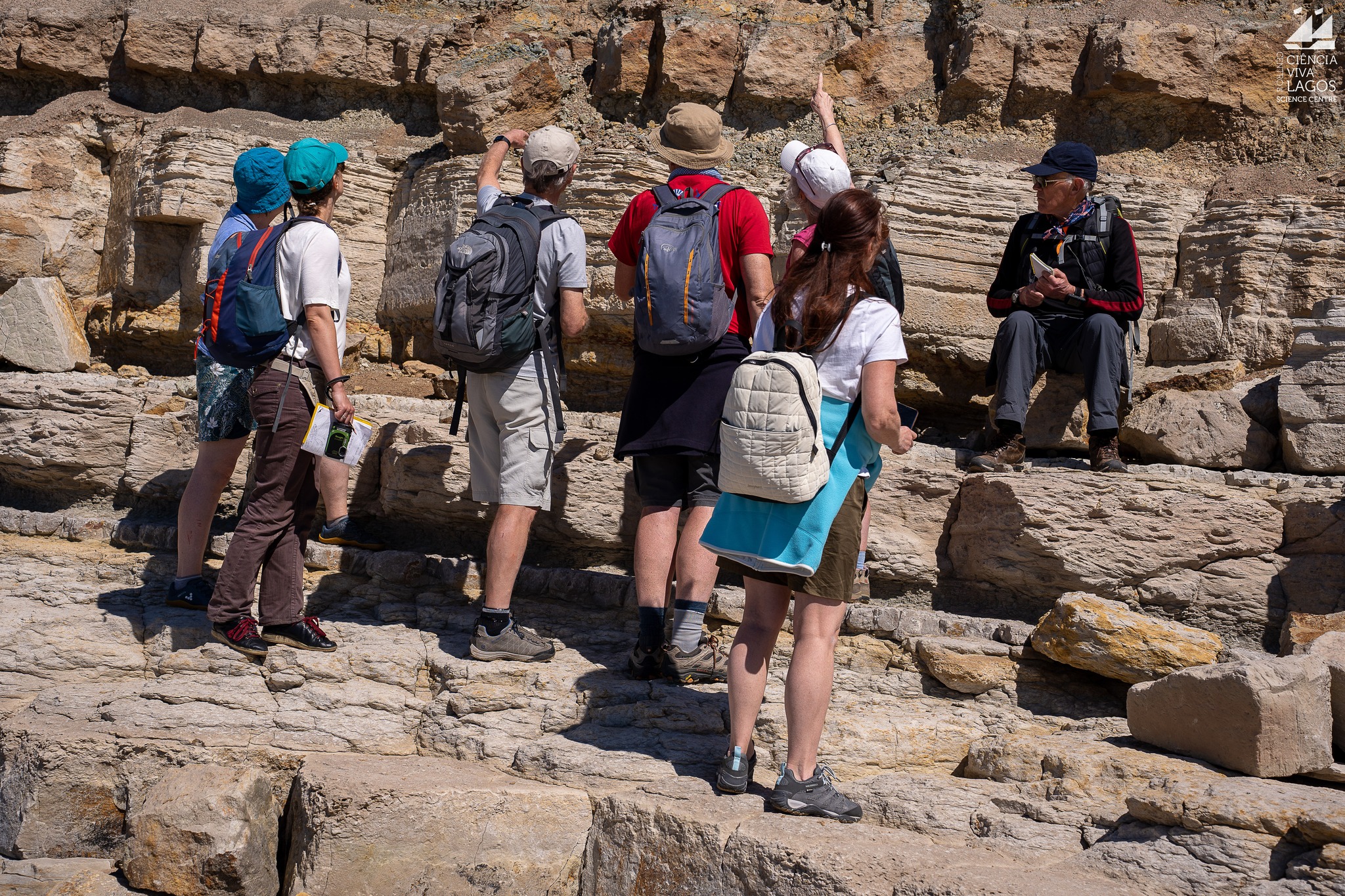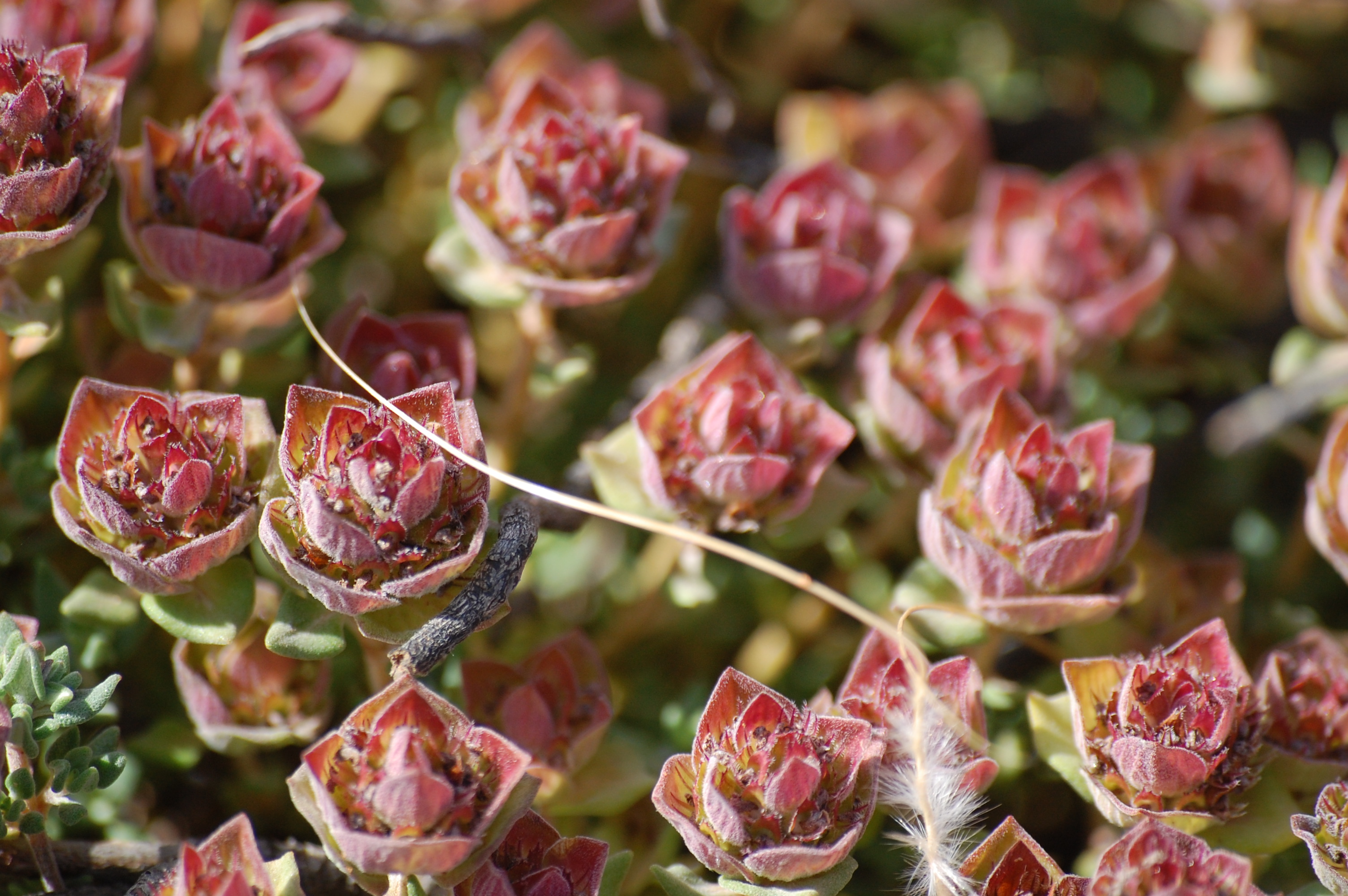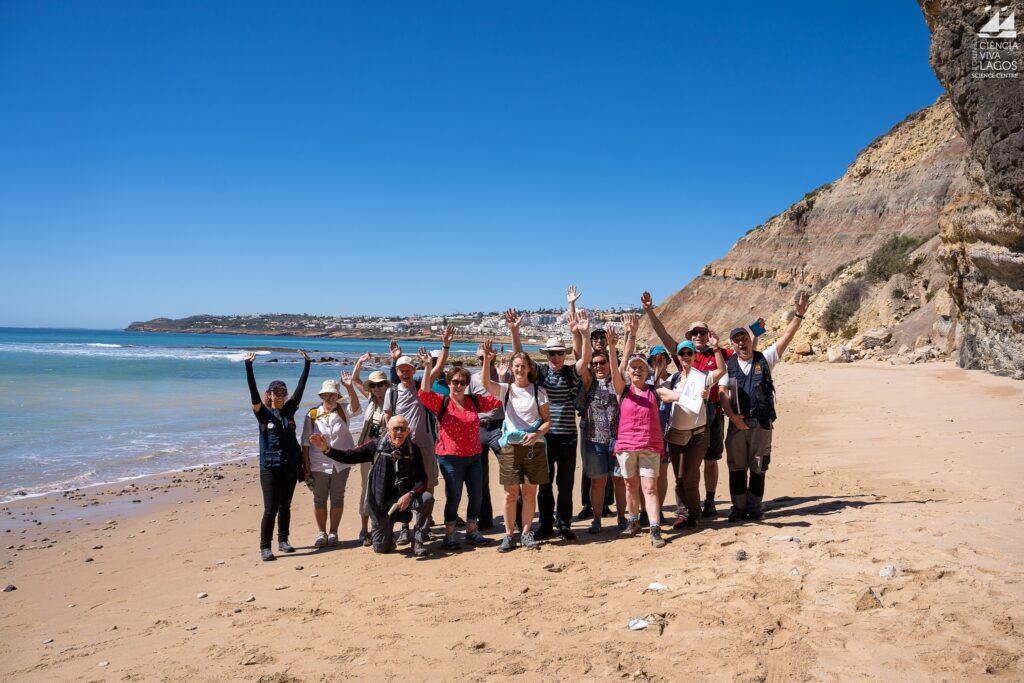The first seminar on Scientific Tourism will take place on the 22nd and 23rd of May, in the Séc. XXI, in Lagos, in an initiative of the Centro Ciência Viva de Lagos, with the support of the local Municipality.
This event is part of the development of the SciTour – Scientific Tourism project, a new approach to promote sustainable tourism in the Algarve, through the enhancement of the local natural and cultural heritage.
The project, led by the Centro Ciência Viva de Lagos and with the University of Algarve as a partner, aims to «assess the potential for scientific tourism in the Algarve region».
For this, several case studies were explored, centered on four main fields: Geology, Paleontology, Archeology and Marine Biodiversity.
The Seminar aims to bring together specialists, researchers, local businessmen and other interested parties to discuss and promote scientific tourism in the region and present the results of the project.
«The aim is to share the opinions of the various local stakeholders on the importance of diversifying the tourist offer, as well as to understand to what extent this differentiating tourist typology could come to assume itself as an added value for the region, from a perspective of socioeconomic enhancement , heritage conservation and environmental sustainability», explains CCV Lagos.

On the 22nd of May, in the morning, a participatory meeting takes place, where the intention is to listen to the opinions of the various local players on the importance of diversifying this tourist offer.
The participatory meeting on Scientific Tourism will be an opportunity to discuss the potential of the Algarve as a destination for scientific tourism, as well as to identify business opportunities and collaboration between participants.
The objectives of this are «to introduce and discuss the concept of scientific tourism», «to assess the potential value of this type of tourism for the region», «to identify various instruments/products of scientific tourism», «to examine the advantages, disadvantages and impacts of these instruments /products», «providing concrete examples of tourism offers to discuss their implementation and operationalization, potential obstacles, and ways to overcome these obstacles, and identify the parties involved in the implementation», and also «identify other types of scientific tourism to be developed in the future".
During the afternoon of the 22nd of May, there will be the opportunity to discuss the future of tourism in the Algarve.
The «Tourism Strategy» will be presented by Fátima Catarina, vice-president of the Algarve Tourism Region, while Aquiles Marreios, from CCDR Algarve, responsible for the Algarve 2030 Programme, will speak on «Algarve, other tourism».
The session ends with the debate “Scientific Tourism – An Algarve with a Future, opportunities and challenges”, with the intervention of previous speakers and Marta Cabral, director of Rota Vicentina. Moderation will be in charge of the journalist. Elisabete Rodrigues.

The 23rd of May is dedicated to sharing examples, experiences and results from various Scientific Tourism projects in Portugal and Europe.
In addition to the SciTour project team, which will share the results of the project, the event has several guests.
Thus, Erik Lundberg, from the University of Gothenburg (Sweden), will speak on «Scientific Tourism – conceptualization, examples and future perspectives», while Fabien Bourlon will share his experience on scientific tourism, an instrument for the development of marginal or transitional tourist areas and his work carried out at the Center for Research in Ecosystems of Patagonia.
For his part, Ari Laakso will show his work, developed in a scientific tourism project in the Center of the Arctic, in Finland, Wonder Seekers | Expanding Minds, about the creation of a brand and a new technology-based concept that combines science and tourism.
As speakers for the session on the 23rd, guests are also invited Anabela Santos, from Associação Almargem, responsible for Via Algarviana, Cristina Veiga-Pires, professor at the University of Algarve and director of the Centro Ciência Viva do Algarve, as well as the German biologist Axel Bamberger , which is developing a project in the Natural Park of Southwest Alentejo and Costa Vicentina. These three speakers will share their experiences in the development of Scientific Tourism projects and activities in the Algarve region.
The SciTour – Scientific Tourism project is an important initiative to promote sustainable tourism in the Algarve region and encourage the economic development of the region.
The Centro Ciência Viva de Lagos, the University of the Algarve and the Municipality of Lagos invite all interested parties to participate in the Seminar on Scientific Tourism and to contribute to the promotion of sustainable tourism in the Algarve region.
Participation is free, but registration is mandatory, it can be done by clicking here.
The SciTour project is funded by the Algarve Regional Operational Program (CRESC Algarve 2020), through Portugal 2020 and the European Regional Development Fund (ERDF), under the Support System for Scientific and Technological Research, co-financed by the Social Fund European.
Click here for the full program
What is the SciTour Project
SciTour is a research project that explores and develops the Natural and Cultural Heritage of the Western Algarve as a product of Scientific Tourism, in the areas of: Geology, Paleontology, Archeology and Marine Biodiversity, as these are the areas that have the greatest potential in our area. of intervention.
They are sustainable resources that are currently undervalued, underdeveloped and underused.
Tourism is the most significant industry in the region, the Algarve already benefits from the existence of accessibility and infrastructure for visitors, which facilitates the implementation and development of Scientific Tourism as a new product that helps to diversify the current offer and to counteract the seasonality of the tourism, being sustainable throughout the year and suitable for the domestic and foreign markets.
The diversified geographical distribution of this resource, which extends beyond the coastline, has the potential to further develop the local economy in areas that tend to attract fewer visitors, complementing the current “Sea and Sun” model as the main driver.
SciTour works as a bridge between Education, Science, Communication and Tourism, that is, a unifying element between these areas of knowledge.
The research team foresees a practical approach that integrates a broader strategy for Science Tourism, Science Communication and the dissemination of scientific content.
This new approach gathered the interest and support of local municipalities, operators, the Algarve Tourism Board and other stakeholders.
The collective objective is to carry out research, develop tools and produce content not only to engage and attract new visitors to new places, but above all to involve these new visitors and local populations and contribute to an increase in their literacy in the various areas of performance and individual interest.
The SciTour research project is a first step towards coordinating a concerted regional strategy to create a world-class offer that can help to differentiate the Algarve region, contrary to its peripheral location.
It also intends to increase competitiveness in the face of emerging, and sometimes cheaper, new tourism markets.
“This strategy of research, development and enhancement of our natural resources can become a business card to attract researchers and specialists to come visit, stay and study, increasing the research potential, publishing new works, sharing new perceptions and knowledge, and strengthen the relevance of our natural heritage”, says Luís Azevedo Rodrigues, director of the CCVL and researcher in charge of the project.
The SciTour project should be seen as a new development in sustainable and lasting tourism.



















Comments